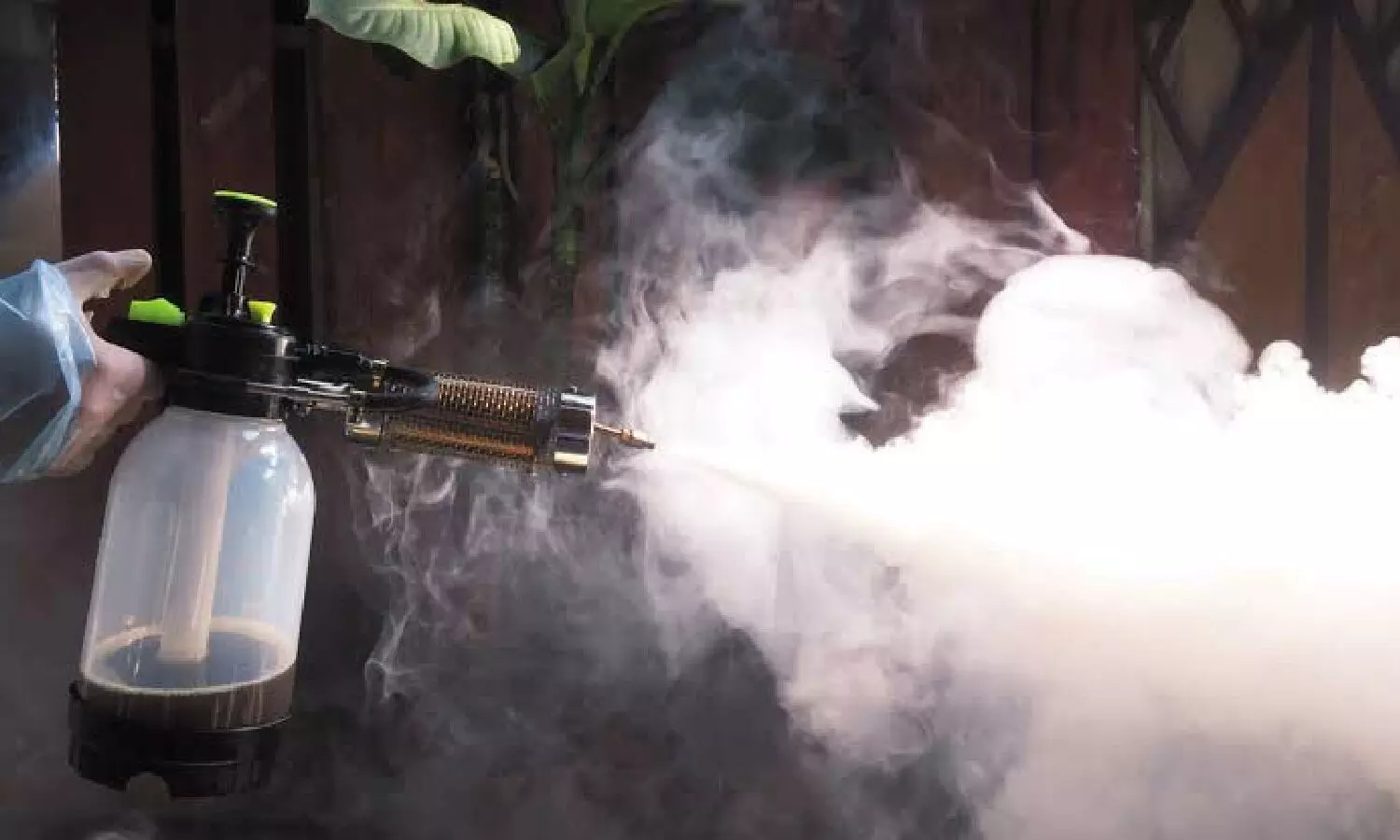Hyderabad: GHMC kicks off targeted fogging, ALO to combat seasonal vector-borne diseases
Seasonal vector-borne diseases: GHMC starts fogging, ALO to keep Hyderabad safe
By Newsmeter Network
Hyderabad: Greater Hyderabad Municipal Corporation (GHMC) has intensified its mosquito control operations with targeted fogging and Anti-Larval Operations (ALO) to combat the seasonal rise in vector-borne diseases in the city.
Dr. Padmaja, Chief Medical and Health Officer of GHMC said fogging was being carried out in 150 wards at the rate of one ward per day. “The process will be completed within a week,” she assured.
Monsoon Preparedness Workshop Held
On Friday, GHMC Commissioner R.V. Karnan chaired a workshop with zonal GHMC officials, medical officers, and scientists to discuss disease prevention strategies during the monsoon.
“Preventive measures are crucial to control the spread of diseases in the rainy season,” Karnan said. He emphasized the importance of personal hygiene, environmental hygiene, and access to safe drinking water to reduce cases of dengue, malaria, typhoid, and other seasonal illnesses such as cold and fever.
Karnan also said that GHMC was undertaking fogging and ALO programs to curb mosquito breeding. He stressed that “the cooperation of the public, local representatives, and inter-departmental organizations is essential to control the spread of vector-borne diseases.”
Role of Community Health Workers
To extend outreach beyond urban areas, the Commissioner stated that auxiliary medical officers would act as nodal officers in rural zones. Additionally, Auxiliary Nurses and Midwives (ANMs), Accredited Social Health Activists (ASHA workers), Anganwadi teachers, women’s Self-Help Groups (SHGs), and educators would conduct Information, Education, and Communication (IEC) programs.
“Similar systems will be organized in GHMC areas as well,” Karnan added.
Technology and Scientific Interventions
Professor J. Venkateswara Rao from the Department of Entomology, Osmania University, highlighted the role of data and technology in identifying mosquito breeding hotspots. “Using technology, we can map disease-prone areas and act early to prevent outbreaks,” he said.
Indian Institute of Chemical Technology (IICT) scientist, K. Lakshmi Narayana Raju, shared methods for lake restoration and mosquito prevention. He suggested that “stagnant water sources be monitored,” and that discarded horse hoofs be converted into bio-manure instead of being thrown away, to discourage mosquito hatching.
Surge in Cases Expected in September
Hyderabad District Medical & Health Officer (DM&HO) Dr. Venkanna noted that September typically sees a spike in dengue cases in Hyderabad. “There is a need to intensify the anti-larval program. GHMC medical teams are working in coordination to execute these efforts,” he said.
Dr. Venkanna emphasized the need for widespread awareness efforts. “IEC programs should be taken up vigorously. Every school is already conducting dengue prevention programs, and this effort now includes cinema theatres, markets, ASHA workers, ANMs, and entomology staff,” he added.
GHMC officials have urged citizens to cooperate with local teams, avoid water stagnation in and around homes, and report mosquito breeding sites through the GHMC app or helpline.